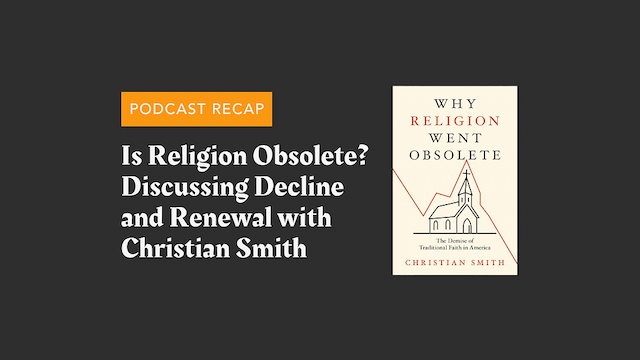Adam and the History of Sin

For whatever was written in former days was written for our instruction, that through endurance and through the encouragement of the Scriptures we might have hope” (Romans 15:4).
History reminds us of the past, defines us in the present, and prepares us for the future. In Scripture, we have something more, something we might call holy history. The narratives of the Old Testament become the palette the New Testament authors used to paint the answers to the great questions of God, faith, and human meaning.
This is the first of a series of five articles on holy history, examining how the Apostle Paul uses Old Testament narratives.
_____
What is wrong with the world?
No human walking the earth believes that everything is as it should be. Relationships are hard. Accomplishments are unfulfilling. Health is fleeting. Suffering – whether in small degrees or great – is universal.
Likewise, every religion, philosophy, and culture offers a diagnosis and a cure to this not-as-it-should-be perspective of human life. Perhaps the gods hate us. Perhaps ignorance needs enlightenment. Perhaps material life must be escaped through meditation.
For Christians, our holy history offers a uniquely stunning diagnosis and one unparalleled, unimaginable cure.
At the being of our human story, God – creator of all – placed a man named Adam in a beautiful garden. The story began with love and care, a Creator who was a providing father rather than a cruel tyrant. In that garden, God gave Adam purpose and vocation, directing him to “work it and keep it” (Genesis 2:15). Additionally, God gave Adam a still more precious and dangerous gift—the option of fulfilling his vocation or not. “You may surely eat of every tree of the garden, but of the tree of the knowledge of good and evil you shall not eat, for in the day that you eat of it you shall surely die” (Genesis 2:16–17). Thus, human identity begins with love, vocation, and choice.
The story never reveals how long Adam and his wife Eve stayed in that idyllic garden perfection, but we know how it ended. A serpent, enters the story without explanation and offers a message contradictory to that of the Creator. “Did God actually say, ‘You shall not eat of any tree in the garden’?” (Genesis 3:1). “You will not surely die. For God knows that when you eat of it your eyes will be opened, and you will be like God, knowing good and evil” (Genesis 3:4-5).
Desiring to be divine, Adam and Eve failed at being human. They grasped the forbidden fruit and turned their back on their vocation. In the passages that follow, God does some consequence-based parenting. He is not punitive or cruel but is firm in explaining what must follow because of human failure.
By his choice, the serpent launched an epic war against heaven, which God promises the serpent will lose. In times to come, this minor victory of the deceiver will be overwhelmed by the inevitable victory of the offspring of Eve.
By his choice, Adam corrupted his vocation as a steward of the earth and even the earth itself. Vines grow thorns, and purpose gives way to toil.
By her choice, Eve poisoned her vocation as well. Motherhood will be painful, and even God’s gift of marriage will be skewed by sin from its original intent.
In sum, the story of Adam and Eve has asked and answered our original question.
What is wrong with the world?
We are.
Human failure, or sin, damaged our vocation, poisoned our choices, and engaged human posterity in a world that would ever be less than it should be. The only thing undiminished by sin was the love of God that started it all.
Paul interprets the story in precisely this fashion. “Sin came into the world through one man, and death through sin, and so death spread to all men because all sinned— Yet death reigned from Adam to Moses, even over those whose sinning was not like the transgression of Adam, who was a type of the one who was to come” (Romans 5:12-14).
What is wrong with the world? It is haunted by Adam and Eve’s sin.
I don’t think any religion or philosophy has ever been so daring in diagnosing the disease of our world. We always look for someone else to blame, much as Adam blamed Eve, and Eve blamed a serpent. Only this holy history dares to tell me the truth. The problem is me. As much as I am a victim of sin, I am also a perpetrator of sin, like my father, Adam, before me.
Is all hope lost? How can anyone cure the human condition when we humans continue that sinful condition each and every day? How can I find a cure when I am the virus?
In this same story, holy history offers God’s audacious plan to do just that. God’s curse on the serpent contained this promise: “I will put enmity between you and the woman, and between your offspring and her offspring; he shall bruise your head, and you shall bruise his heel” (Genesis 3:15). The cure would come from God, but it would pass through woman. A very human offspring would defeat the serpent.
Paul illuminates that promise in this way:
For if many died through one man’s trespass, much more have the grace of God and the free gift by the grace of that one man Jesus Christ abounded for many. … For if, because of one man’s trespass, death reigned through that one man, much more will those who receive the abundance of grace and the free gift of righteousness reign in life through the one man Jesus Christ. Therefore, as one trespass led to condemnation for all men, so one act of righteousness leads to justification and life for all men. For as by the one man’s disobedience the many were made sinners, so by the one man’s obedience the many will be made righteous. (Romans 5:12-19)
One man’s choice had started the ball rolling down the hill, and now one man’s choice would reverse the consequences of that failure and all that followed. God himself would become us to redeem us. The Son, rather than grasping for divinity, would give up his throne to stand with us, suffer for us, and heal us.
We live in a world being redeemed by Jesus Christ. History has been reversed, and our failures unmade.
Dr. Benjamin Williams is the Senior Minister at the Central Church of Christ in Ada, Oklahoma and a regular writer at So We Speak. Check out his books The Faith of John’s Gospel and Why We Stayed or follow him on Twitter, @Benpreachin.











